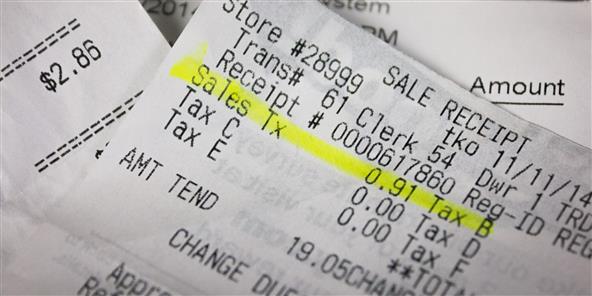Northwest Arkansas sales tax revenue rose 8.66% in February reports
by February 27, 2023 3:26 pm 982 views

Bentonville, Fayetteville, Rogers and Springdale reported cumulative sales tax revenue of $10.052 million, up 8.66% in the cities’ respective February reports. The February reports show tax revenue for goods and services sold in December.
Rogers was the only city in the group to report softer sales compared to the prior year. Revenue totaled $2.617 million, down 0.44% in the year-over-year period. The city’s results were impacted by rebates of $141,716 this month and the city was also facing a comparison of 14.12% growth reported a year ago. In the first two reports of 2023, Rogers’s sales tax revenue is up 3.67% from the same period last year.
Bentonville had the highest monthly revenue gain, with the city collecting $2.482 million, up 22.17%. The city has collected $4.383 million in the first two reporting months of this year, up 25.4% over the same period last year.
Springdale sales tax revenue of $2.056 million, up 8.81% from a year ago. City leaders said they expect revenue will dip this year as consumers pull back on the purchase of goods to enjoy more experiences and travel. Through the first two months of the year, the city’s revenue growth is 9% year-over-year, with total revenue of $3.982 million, slightly ahead of the budget, according to Mayor Doug Sprouse.
Fayetteville is also off to a good start. At $2.896 million, the revenue report in February was 7.27% more than in the year-ago report. Fayetteville’s total revenue for the two reporting months of 2023 totals $5.547 million, up 7.22% over strong numbers last year.
City leaders have budgeted for slower growth after double-digit revenue gains in the prior two years. Sales tax revenue will likely be impacted by persistent inflation and higher consumer prices than tends to curb purchasing power. Economists at Wells Fargo Securities said this month that inflation is not going away quietly. Over the past three months, the core CPI rose at a 4.6% annualized pace, stubbornly ahead of the Fed’s 2% target.
“We still see inflation set to grind lower, but the process is likely to be bumpy and take time. The bounceback in retail sales in January points to consumer resilience through the first quarter,” noted Jay Bryson, chief economist at Wells Fargo Securities.
